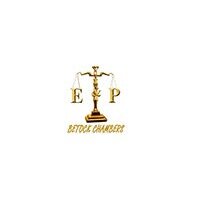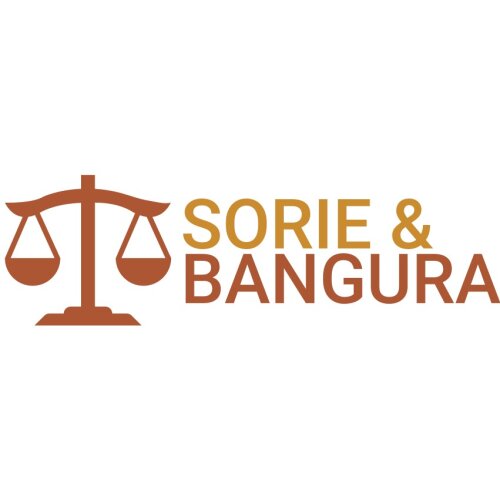Best Renewable & Alternative Energy Lawyers in Sierra Leone
Share your needs with us, get contacted by law firms.
Free. Takes 2 min.
Or refine your search by selecting a city:
List of the best lawyers in Sierra Leone
About Renewable & Alternative Energy Law in Sierra Leone
Sierra Leone is working to increase access to cleaner, sustainable energy sources as part of its national development plans and to address energy security and climate change. Renewable and alternative energy in Sierra Leone generally refers to energy generated from resources such as solar, wind, hydro, and biomass instead of traditional fossil fuels. The government has set ambitious targets to increase the share of renewable energy in its national energy mix in alignment with international agreements like the Paris Agreement. Laws and policies have been developed to regulate, incentivize, and manage the growing renewable energy sector, involving both public and private stakeholders.
Why You May Need a Lawyer
Venturing into renewable and alternative energy in Sierra Leone can be complex due to the evolving legal, technical, and regulatory environment. Common situations where legal advice may be essential include:
- Obtaining licenses and permits to develop or operate a renewable energy project
- Negotiating Power Purchase Agreements (PPAs) with the government or utilities
- Understanding and ensuring compliance with environmental regulations
- Interpreting tax incentives or exemptions for renewable energy investments
- Managing land acquisition, leases, or community consultations
- Resolving disputes with partners, suppliers, or government agencies
- Protecting intellectual property or proprietary technology related to energy solutions
- Navigating import regulations for renewable energy equipment
- Participating in government tenders or grants for clean energy projects
- Advising on joint ventures, mergers, or acquisitions in the renewable sector
Local Laws Overview
Renewable and alternative energy activities in Sierra Leone are guided by national laws, sector-specific regulations, and international commitments. Some key legal frameworks and policies include:
- National Renewable Energy Policy - Outlines the government’s objectives and incentives for renewable energy uptake.
- Electricity Act 2011 - Regulates electricity generation, transmission, and distribution, including provisions for independent power producers using renewables.
- Environment Protection Agency Act - Requires environmental impact assessments for new energy projects to mitigate environmental risks.
- Energy Efficiency Policy - Encourages the adoption of clean energy technologies and efficient practices.
- Customs and Tax Incentives - Provides exemptions for importation of renewable energy equipment under certain conditions.
- Other related laws govern land use, community engagement, foreign investment, and public-private partnerships.
Different government ministries and agencies have roles in implementation and oversight, including the Ministry of Energy, the Environment Protection Agency, and the Sierra Leone Electricity and Water Regulatory Commission.
Frequently Asked Questions
What are the main types of renewable energy being developed in Sierra Leone?
Solar, hydro, and biomass are the most widely developed sources, with solar being especially popular for off-grid rural electrification.
Do I need a special license or permit to start a renewable energy project?
Yes, most renewable energy projects require permits and licenses from relevant agencies, depending on the scale and type of the project.
Are there tax incentives for investing in renewable energy?
Yes, there are tax exemptions and import duty waivers available for certain renewable energy equipment and projects. Eligibility criteria and application procedures apply.
How do Power Purchase Agreements (PPAs) work in Sierra Leone?
PPAs are contracts between power producers and buyers, usually the national utility or government, outlining terms for sale and purchase of electricity. Legal review is strongly recommended before signing.
What agencies regulate renewable energy?
Key agencies include the Ministry of Energy, the Environment Protection Agency, and the Sierra Leone Electricity and Water Regulatory Commission.
Do renewable energy projects require an environmental impact assessment?
Yes, most projects must undergo an environmental impact assessment, especially if they have potential effects on land, water, or communities.
Can foreign investors participate in renewable energy projects?
Yes, foreign investment is encouraged, but investors must comply with national laws, obtain relevant permits, and may need to partner with a local entity.
Are there community consultation requirements for renewable projects?
Yes, developers must engage and consult local communities, especially for large-scale projects, to address potential impacts and ensure social license to operate.
How can disputes in the renewable sector be resolved?
Disputes can be settled through negotiation, mediation, arbitration, or, where necessary, litigation in the courts.
Where can I find the most recent renewable energy regulations?
Recent regulations can be found at government ministry offices, relevant regulatory agencies, or by consulting with a qualified legal professional in the sector.
Additional Resources
Several resources and organizations can assist those seeking legal or technical information about renewable and alternative energy in Sierra Leone:
- Ministry of Energy
- Environment Protection Agency (EPA)
- Sierra Leone Electricity and Water Regulatory Commission
- Sierra Leone Investment and Export Promotion Agency (SLIEPA)
- Renewable Energy Association of Sierra Leone
- Legal Aid Board of Sierra Leone
- Chambers of Commerce and sector-specific professional associations
- Development partners such as UNDP and World Bank operating energy programs
Next Steps
If you need legal assistance in renewable and alternative energy in Sierra Leone, consider the following steps:
- Clearly outline your project, investment, or legal issue.
- Gather any available documentation and identify your key concerns and goals.
- Contact a lawyer or law firm specializing in energy law, environmental law, or business law.
- Request an initial consultation to discuss your options and receive advice on legal requirements and next steps.
- Engage professional support for permit applications, negotiations, and compliance to minimize risks and improve project outcomes.
- Stay updated by regularly checking with regulatory agencies and professional networks.
Being proactive and well-informed will help you navigate the complex legal environment and contribute to the sustainable energy transition in Sierra Leone.
Lawzana helps you find the best lawyers and law firms in Sierra Leone through a curated and pre-screened list of qualified legal professionals. Our platform offers rankings and detailed profiles of attorneys and law firms, allowing you to compare based on practice areas, including Renewable & Alternative Energy, experience, and client feedback.
Each profile includes a description of the firm's areas of practice, client reviews, team members and partners, year of establishment, spoken languages, office locations, contact information, social media presence, and any published articles or resources. Most firms on our platform speak English and are experienced in both local and international legal matters.
Get a quote from top-rated law firms in Sierra Leone — quickly, securely, and without unnecessary hassle.
Disclaimer:
The information provided on this page is for general informational purposes only and does not constitute legal advice. While we strive to ensure the accuracy and relevance of the content, legal information may change over time, and interpretations of the law can vary. You should always consult with a qualified legal professional for advice specific to your situation.
We disclaim all liability for actions taken or not taken based on the content of this page. If you believe any information is incorrect or outdated, please contact us, and we will review and update it where appropriate.
Browse renewable & alternative energy law firms by city in Sierra Leone
Refine your search by selecting a city.












